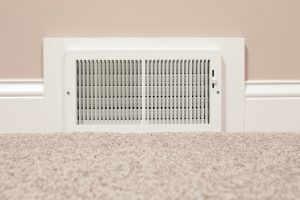 With nighttime temperatures traditionally hovering no higher than 39° at least through April, the short answer to this question is, “no.” If you do suspect or know that you have heating repair needs, you may be tempted to use your heater less and less, and be ready to just shut it off when the heating season ends so you don’t have to deal with it, but this can be a mistake.
With nighttime temperatures traditionally hovering no higher than 39° at least through April, the short answer to this question is, “no.” If you do suspect or know that you have heating repair needs, you may be tempted to use your heater less and less, and be ready to just shut it off when the heating season ends so you don’t have to deal with it, but this can be a mistake.
Ignoring any sort of heating system issues can cause it to progress into a much bigger problem, leaving you with a broken down heater next year when you need it, or even before winter weather ends this year. But how do you know if you have heater problems that need managing, unless you’ve been told by a pro that you do? Read on to learn some of the common signs of a heating repair need.

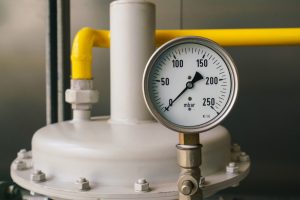 There may have been some point during your homeownership when you were told that your boiler is being impacted by scaling. Maybe you’re unsure of whether to take this problem seriously or not. We’re here to tell you that yes, you should. Scaling in boilers is actually really common, and also really serious. It’s caused by high levels of minerals in the water—namely, calcium and magnesium—that get left behind in the boiler tank and tubes. This can lead to a reduction in heat as well as a loud banging noise in some instances.
There may have been some point during your homeownership when you were told that your boiler is being impacted by scaling. Maybe you’re unsure of whether to take this problem seriously or not. We’re here to tell you that yes, you should. Scaling in boilers is actually really common, and also really serious. It’s caused by high levels of minerals in the water—namely, calcium and magnesium—that get left behind in the boiler tank and tubes. This can lead to a reduction in heat as well as a loud banging noise in some instances.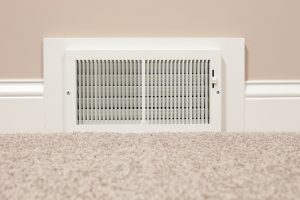 When you live in New Jersey, you know that winter temperatures dip to a point that not only is a fully functional heater more comfortable, it’s a vital necessity to keep you warm and comfortable all season long. If you own a heat pump system for your heating and cooling needs, it’s likely due to its numerous benefits: heat pumps are versatile, efficient, and extremely effective. And since this system works year-round, it’s important that you have it regularly maintained and quickly repaired when something does go wrong with it.
When you live in New Jersey, you know that winter temperatures dip to a point that not only is a fully functional heater more comfortable, it’s a vital necessity to keep you warm and comfortable all season long. If you own a heat pump system for your heating and cooling needs, it’s likely due to its numerous benefits: heat pumps are versatile, efficient, and extremely effective. And since this system works year-round, it’s important that you have it regularly maintained and quickly repaired when something does go wrong with it.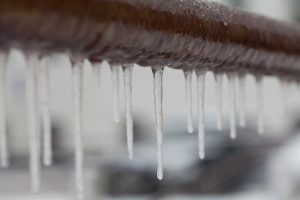 It pretty much goes without saying that it gets pretty cold here in our area! As a result, frozen pipes are certainly a threat. While we don’t have to worry about them quite yet, the time to prepare for them and avoid this problem in the winter is now. Frozen pipes lead to other issues, such as burst pipes and subsequent damage, which we assume you’d like to avoid!
It pretty much goes without saying that it gets pretty cold here in our area! As a result, frozen pipes are certainly a threat. While we don’t have to worry about them quite yet, the time to prepare for them and avoid this problem in the winter is now. Frozen pipes lead to other issues, such as burst pipes and subsequent damage, which we assume you’d like to avoid!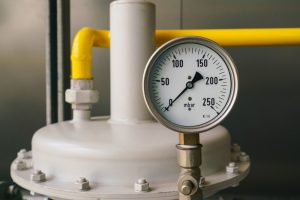 With temperatures already cooled down to a point that you need your heating system on a daily basis, we hope yours is working as well as it sh. But what if you’ve skipped maintenance, or you have an aging system that just can’t keep up with the heating demand in your home anymore? Well, then it may very well be time to invest in a new heater.
With temperatures already cooled down to a point that you need your heating system on a daily basis, we hope yours is working as well as it sh. But what if you’ve skipped maintenance, or you have an aging system that just can’t keep up with the heating demand in your home anymore? Well, then it may very well be time to invest in a new heater.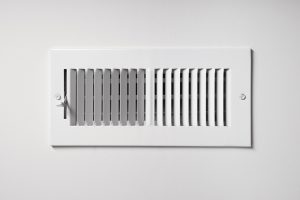 Winters are harsh in our area. Or, at least they can be without an effective and efficiency furnace in place. And yours is about to be put under a lot of stress. The strain our furnaces go through during the coldest part of the year increases the chances of problems cropping up over time, which is why you should be particularly vigilant for signs that it is struggling and in need of
Winters are harsh in our area. Or, at least they can be without an effective and efficiency furnace in place. And yours is about to be put under a lot of stress. The strain our furnaces go through during the coldest part of the year increases the chances of problems cropping up over time, which is why you should be particularly vigilant for signs that it is struggling and in need of 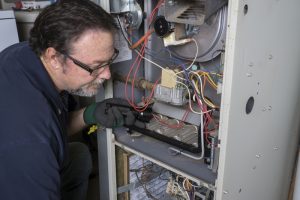 Temperatures aren’t quite cold enough to start using a furnace on a daily basis just yet, but you may have already tried turning yours on to discover it wouldn’t start at all. With cooler weather right around the corner, this is certainly not a problem you want to have to face, and certainly not one you can sit around waiting to have repaired.
Temperatures aren’t quite cold enough to start using a furnace on a daily basis just yet, but you may have already tried turning yours on to discover it wouldn’t start at all. With cooler weather right around the corner, this is certainly not a problem you want to have to face, and certainly not one you can sit around waiting to have repaired.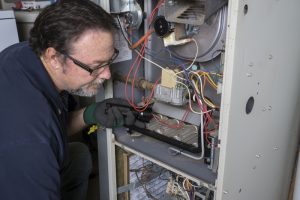 It may seem odd that we’re already talking about heaters. But think about it—sure it may be hot this week, but cold weather is right around the corner. As such, you’ll be relying on your furnace very heavily, and sooner than you may really realize.
It may seem odd that we’re already talking about heaters. But think about it—sure it may be hot this week, but cold weather is right around the corner. As such, you’ll be relying on your furnace very heavily, and sooner than you may really realize. You might be scratching your head on this one. “What? UV rays are GOOD for me? What about sunburns—skin cancer risks?” You’d be right, but that’s not the level of UV light we’re talking about here. This is more of what you know as a “black light”—seen at many concert and amusement parks after dusk.
You might be scratching your head on this one. “What? UV rays are GOOD for me? What about sunburns—skin cancer risks?” You’d be right, but that’s not the level of UV light we’re talking about here. This is more of what you know as a “black light”—seen at many concert and amusement parks after dusk. There are very specific standards that a person much reach to become a professional plumber in New Jersey. These standards are in place to ensure that consumers are left with a plumbing system that functions as effectively and efficiently as it should for as long as it should, and does so safely.
There are very specific standards that a person much reach to become a professional plumber in New Jersey. These standards are in place to ensure that consumers are left with a plumbing system that functions as effectively and efficiently as it should for as long as it should, and does so safely.